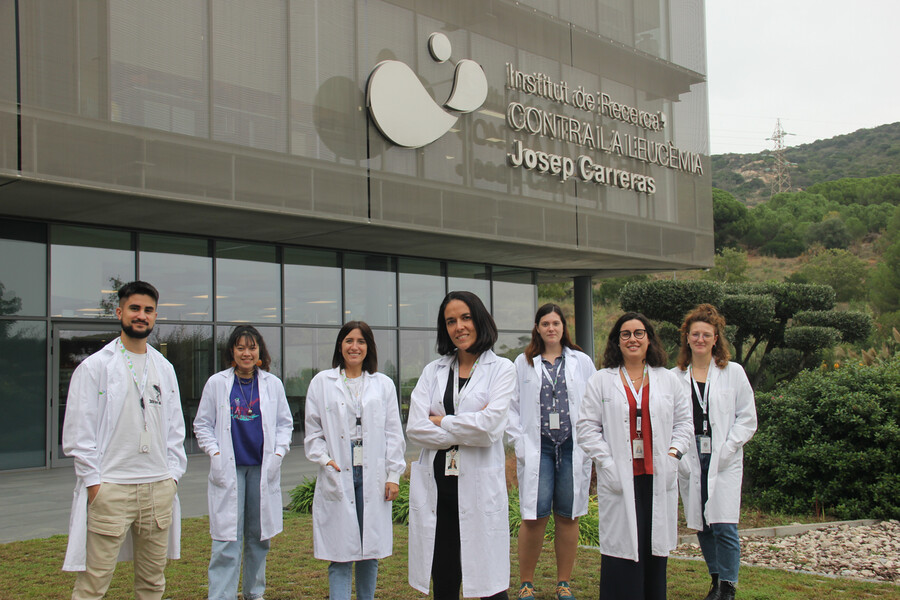
Introduction
Juvenile myelomonocytic leukemia (JMML) is a rare and aggressive type of pediatric blood cancer that affects mainly children under two years of age and occurs when bone marrow production of white cells becomes severely dysregulated. Hematopoietic stem cell transplantation (HSCT) is currently the only available treatment for patients, although just two out of three children affected by the disease survive.
Our Research
Since 2020, our work has focused on the study of the molecular mechanisms driving JMML and the exploration of alternative therapeutic strategies specifically designed for these patients. To achieve this, we incorporate different methods into epigenetics, systems biology, functional genomics and biochemistry, to help address critical questions about the origin and progression of JMML and to identify new therapeutic targets for the treatment of this disease.
Our Goals
The specific goals of our research program are as follows:
- To create a centralized JMML sample repository and patient-derived xenograft (PDX) collection. In collaboration with clinical teams at different hospitals around the country and with the endorsement of the Spanish Society of Pediatric Hematology and Oncology (SEHOP), we are creating a national JMML patient sample repository and PDX collection, that will be instrumental for the development of our research program.
- To develop a comprehensive molecular analysis of JMML patients to define accurate diagnostic and stratification criteria. We aim to explore the non-coding genome of JMML patients to identify new genetic alterations that can drive JMML or contribute to the pathogenesis of the disease by other means. This information will help improve our knowledge of JMML and develop more accurate criteria for the diagnosis and management of JMML patients.
- To identify new potential therapeutic targets and develop specific therapies for the treatment of JMML. HSCT is currently the only effective therapy for the treatment of JMML. However, only two out of three children with this disease survive. Thus, new therapies specifically designed to treat JMML patients are needed. To achieve this, we are collaborating with other research groups and with biotechnology companies to identify specific JMML therapeutic targets and explore strategies for their clinical use for the treatment of JMML patients.
We are confident that our results will have an important impact on the diagnosis and treatment of JMML by increasing knowledge of the disease and expanding the therapeutic options open to these patients. Moreover, our close collaboration with clinical teams in the development of this project will guarantee that our most promising discoveries have a rapid and direct impact on JMML patients.
Our Challenges
With our research, we aim to answer the following questions:
What is the relevance of non-coding somatic mutations in the generation and development of JMML?
Can non-coding mutations predict the prognosis of JMML patients?
What are the best therapeutic targets for the development of JMML-specific treatments?
Selected Publications
Current Grants
Fundación federación española de enfermedades raras
Desarrollo de nuevas terapias celulares para el tratamiento de pacientes de lupus eritematoso sistémico

European commission
IMMUNO-model Modelling immunotherapy response and toxicity in cancer


European commission
ACHILLES Advancing in the CHallenge of Improving Lymphoma and LEukemia Surviva
Fundació internacional josep carreras
Desing and development of novel precision therapies targeting GATA3 in T-cell acute lymphoblastic leukemia
Fundación merck salud
Diseño de terapias celulares para el tratamiento de pacientes de lupus eritematosus sistemico


Ministerio de ciencia, innovación y universidades
SINKtheSHP Evaluación de inhibidores de molecula pequeña dirigidos a neutralizar de la actividad oncogénica de SHP2 en cáncer
Ministerio de ciencia, innovación y universidades
Genetics and molecular mechanisms in hematologic malignancies







